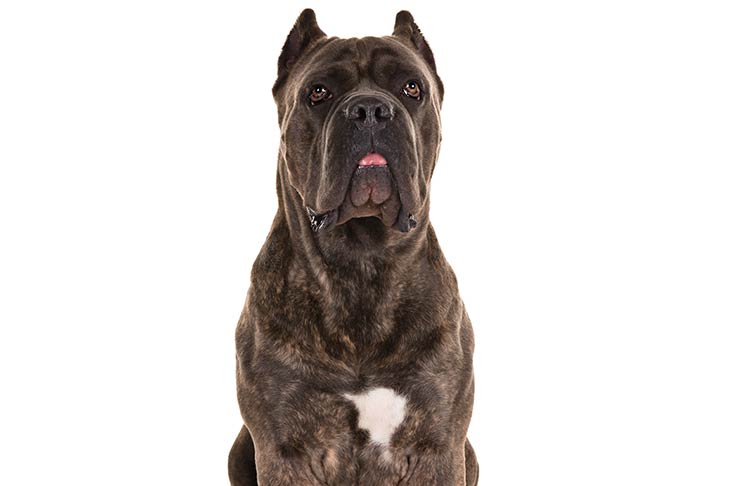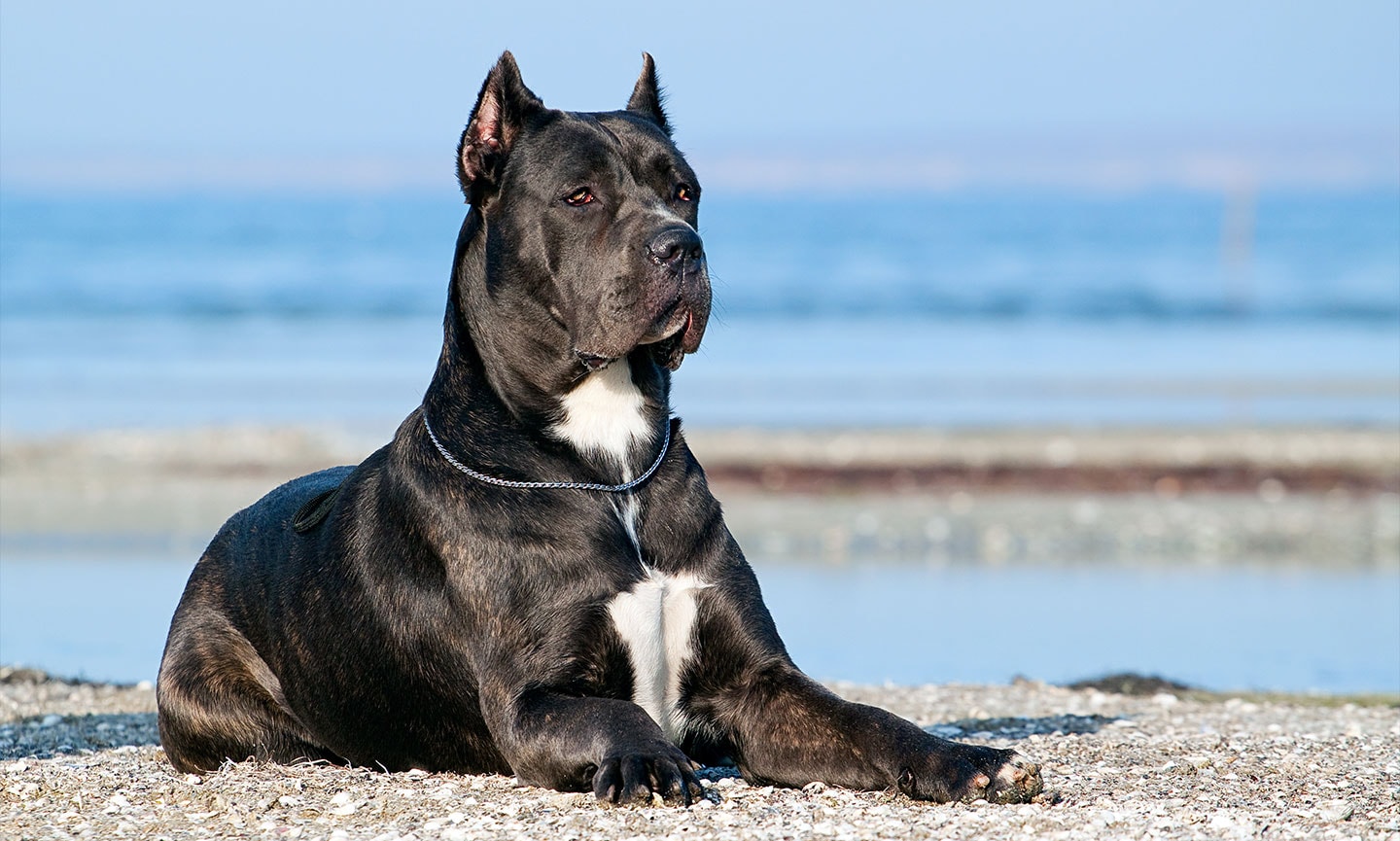When can you breed a Cane Corso? It’s an important question for any dog owner considering breeding their beloved pet. One surprising fact to consider is that the Cane Corso is a large and powerful breed that matures more slowly than smaller dog breeds. This means that waiting until the right age to breed is crucial for the health and well-being of both the parent dogs and the puppies.
The most significant aspects to consider when determining when to breed a Cane Corso include their physical and emotional development. Cane Corsos typically reach sexual maturity between 18 months and 2 years of age. However, it is important to wait until their bodies have fully developed, which can take up to 3 years for this breed. Breeding Cane Corsos too early can result in health complications and affect the overall quality of the offspring. Responsible breeders prioritize the well-being of their dogs and ensure that they are mature enough to handle the physical demands of breeding and pregnancy.
It is recommended to breed a Cane Corso after the age of two. This allows them to fully develop physically and mentally, ensuring a healthier and more stable breeding. Breeding too early can result in complications and health issues for both the male and female dogs. Waiting until the Cane Corso is fully mature also helps ensure that they have reached their optimal size and temperament for breeding. Remember, responsible breeding is important for the well-being of the breed and the individual dogs involved.

When Can You Breed Cane Corso?
The Cane Corso is a magnificent breed known for its strength, loyalty, and protective nature. If you own a Cane Corso or are considering breeding one, you may be wondering when the right time is to breed them. Breeding a Cane Corso requires careful consideration and planning to ensure the health and well-being of the dog and its offspring. In this article, we will explore the factors that determine when you can breed a Cane Corso and provide you with valuable insights and guidelines to make informed decisions.
The Age of Maturity
The age of maturity is an essential factor to consider when deciding when to breed your Cane Corso. Most female Cane Corsos reach sexual maturity between 9 and 15 months of age, while males typically reach maturity between 12 and 16 months. It is crucial to wait until your dog is fully developed physically and mentally before considering breeding. Breeding too early can have adverse health effects on the dog and increase the risk of complications during pregnancy and delivery.
Consulting with a veterinarian is highly recommended to determine the optimal age for breeding your Cane Corso. The vet will assess the overall health, size, and development of your dog and provide expert guidance on the appropriate age to start the breeding process.
Health and Genetic Testing
Before breeding a Cane Corso, it is crucial to ensure the health and genetic quality of the dog. This breed is susceptible to certain health conditions such as hip dysplasia, elbow dysplasia, and certain genetic disorders. Conducting health and genetic tests on both the male and female dogs is essential to prevent the transmission of these conditions to future generations.
Health tests typically include evaluating the dog’s hips, elbows, eyes, and heart. Genetic tests can identify potential carriers of genetic disorders. Only healthy and genetically sound dogs should be considered for breeding to maintain the breed’s overall health and minimize the risk of hereditary diseases.
Choosing a Suitable Mate
When selecting a mate for your Cane Corso, consider their health records and genetic test results. Choose a mate with qualities that complement your dog and improve the breed’s overall health and temperament. Consulting with a reputable breeder or a knowledgeable veterinarian can provide valuable guidance in selecting the right mate for your Cane Corso.
The Heat Cycle
Understanding the heat cycle of female Cane Corsos is crucial when planning for breeding. The heat cycle, also known as estrus, is the period during which the female is receptive to mating and can become pregnant. The heat cycle typically occurs every 6 to 9 months and lasts for approximately 2 to 4 weeks.
It is important to note that the best time to breed a female Cane Corso is during her “fertile period,” which occurs approximately 9 to 11 days after the onset of her heat cycle. During this time, her eggs are mature, and successful fertilization is more likely.
Breeding Regulations and Considerations
Before breeding a Cane Corso, it is essential to familiarize yourself with the breeding regulations and considerations in your region. Some countries and organizations have specific guidelines and requirements for breeding, including health certifications, pedigree documentation, and registration procedures.
Responsible breeders prioritize the health and well-being of the dogs and strive to produce high-quality offspring. They follow ethical breeding practices and ensure proper socialization, care, and placement of the puppies. Breeding without proper knowledge and understanding can lead to unintentional harm to the dogs and contribute to overpopulation and the proliferation of unhealthy individuals.
It is also important to consider your own readiness for the responsibilities that come with breeding. Breeding requires time, effort, and financial resources to provide proper care for the dogs and puppies. Ensure you have a well-thought-out plan in place before embarking on the breeding journey.
Is Breeding a Cane Corso Right for You?
Now that you have a better understanding of when you can breed a Cane Corso, it’s essential to evaluate whether breeding is the right decision for you. Breeding Cane Corsos can be a rewarding experience, but it also comes with significant responsibilities and commitments.
Consider the following factors before deciding to breed your Cane Corso:
- Your knowledge and understanding of the breed
- Your ability to provide proper care and socialization for the puppies
- Your financial resources to support the breeding process
- Your commitment to finding suitable homes for the puppies and providing ongoing support and guidance to the new owners
- Your willingness to prioritize the health and well-being of the dogs over financial gain
If you are unsure about any of these factors or do not have the necessary resources to responsibly breed Cane Corsos, it may be better to leave breeding to experienced and reputable breeders who can ensure the well-being of the dogs and the preservation of the breed.
Key Takeaways – When Can You Breed Cane Corso?
- The optimal age to breed a Cane Corso is around 2-3 years old when they have reached full physical and mental maturity.
- It is important to wait until the dog has been health tested and cleared of any hereditary diseases or conditions that could be passed on to the offspring.
- Both male and female Cane Corsos should have a stable temperament and be well-trained before breeding.
- Breeding should only be done responsibly by knowledgeable and ethical breeders who prioritize the health and well-being of the dogs.
- It is important to consult with a veterinarian and professional breeder to ensure all necessary preparations and precautions are taken before breeding your Cane Corso.
Frequently Asked Questions
When it comes to breeding Cane Corso dogs, there are important factors to consider. In this section, we will address some commonly asked questions to help you understand when it is appropriate to breed your Cane Corso.
1. At what age can I breed my Cane Corso?
The ideal age to breed a Cane Corso is between 2 and 3 years old. This ensures that the dog has fully developed both physically and mentally, reducing the risk of complications during pregnancy and birth.
It is crucial to wait until the Cane Corso has reached sexual maturity and is physically mature enough to handle the demands of pregnancy and raising a litter of puppies. Breeding a dog too early can lead to health issues and may result in a higher likelihood of complications during labor.
2. Are there any health tests I should do before breeding?
Yes, before breeding your Cane Corso, it is essential to conduct health tests to ensure you are producing healthy puppies and maintaining the integrity of the breed. Some recommended tests include:
– Hip and elbow evaluations to check for dysplasia
– Cardiac evaluation to screen for heart conditions
– Thyroid evaluation to detect any thyroid-related issues
These tests help identify potential hereditary health problems that could be passed on to the next generation. It is crucial to work with a reputable veterinarian to ensure the health of both the dam and sire before breeding.
3. How often can I breed my Cane Corso?
Cane Corsos should not be bred on every heat cycle. It is generally recommended to allow the female Cane Corso to have at least one heat cycle and reach optimal health before considering breeding her again.
Breeding a female dog too frequently can lead to health complications and exhaustion. Giving her body time to recover and replenish nutrients is crucial for her well-being and the health of future litters.
4. What precautions should I take during the breeding process?
When breeding your Cane Corso, it is important to take certain precautions to ensure a successful and safe process. Here are some essential precautions:
– Monitor the female’s health closely during the breeding process
– Provide a comfortable and stress-free environment for both the male and female dogs
– Consult with a veterinarian to determine the best time for breeding
– Stay prepared for any emergency situations during pregnancy and labor
5. Is it necessary to have experience in breeding before breeding a Cane Corso?
While it is not mandatory to have previous breeding experience, it is highly recommended. Breeding dogs requires knowledge, dedication, and careful planning to ensure the health and well-being of both the dam and the puppies.
If you are a first-time breeder, consider seeking guidance from experienced breeders or working closely with a reputable mentor. Breeding should not be taken lightly, and having the support and advice of more experienced individuals can greatly enhance your chances of success.

To breed a Cane Corso, it’s important to wait until the dog is mature enough, usually around 2 years old.
This allows the dog to fully develop physically and mentally, ensuring a healthier and more successful breeding process.
